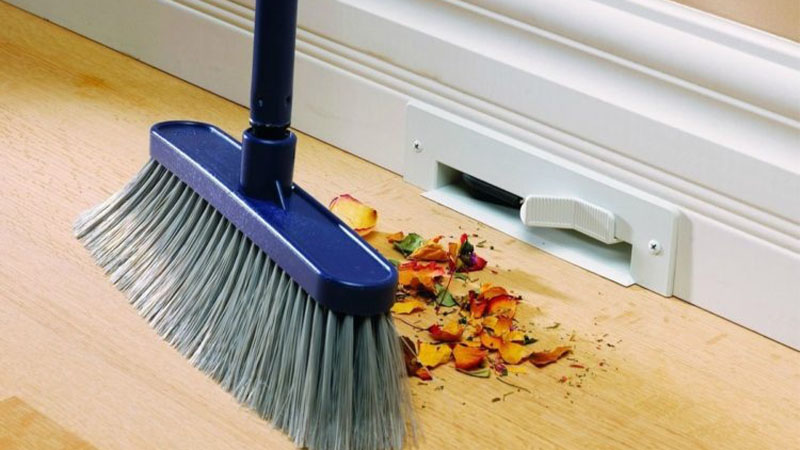With the arrival of Spring, it is customary for people to remind each other of the things to avoid doing at the start of the year, in hopes of a peaceful and fortunate new year, free from any unnecessary bad luck.
According to folk beliefs, sweeping on the first day of Tet sweeps away your wealth and luck for the entire year, leading to financial instability for the family. This belief holds that family members will be unable to accumulate wealth, and any wealth accumulated will be spent on external matters without the ability to save.
See also: For good luck and prosperity all year round
 Why shouldn’t you sweep the house on the first day of Tet?
Why shouldn’t you sweep the house on the first day of Tet?
This superstition stems from the idea that when you throw out the trash, you also get rid of the God of Wealth. Therefore, people usually pile up the trash in a corner and wait until the second day of Tet to clean.
This superstition is based on an ancient Chinese tale recorded in the “Sou Shen Ji.”
The story goes that a merchant named Au Minh received a servant named Nhu Nguyet from the Water God while passing by Qing Cao Lake. After bringing her home, Au Minh’s business flourished, and his family became wealthy. One day, on the first day of Tet, Au Minh beat Nhu Nguyet for an unknown reason, and she hid in a pile of garbage in the corner of the house. Au Minh’s wife accidentally swept and threw away the garbage, including Nhu Nguyet. From then on, the family’s fortune declined. People believed that Nhu Nguyet was the God of Wealth and set up an altar to worship her. Thus, the custom of avoiding sweeping and taking out the trash on the first day of the year to avoid sweeping away good fortune came into being.
See also: Lucky and Prosperous Quy Mao 2023
I hope this article helps you understand why you shouldn’t sweep the house on the first day of Tet to avoid bad luck for the rest of the year. Wishing you a happy and prosperous new year.
1. Loud noises: In many cultures, loud noises, such as firecrackers or noisemakers, are believed to scare away evil spirits and bring good luck for the coming year.
2. Opening windows: Opening all the windows in your home during the first few minutes of the new year is thought to allow the old year to escape and make way for new beginnings.
3. Money matters: Handling money on New Year’s Day is a superstition with varying beliefs. Some cultures suggest lending money to bring a year of abundance, while others advise against it to prevent a year of financial struggle.
4. First visitor: In Scotland, it is believed that the first visitor of the year (known as the ‘first-footer’) brings either good or bad luck for the coming year. Ideally, the first-footer should be a tall, dark-haired man bringing gifts such as coal (for warmth), shortbread (for food), and whiskey (for cheer).






































